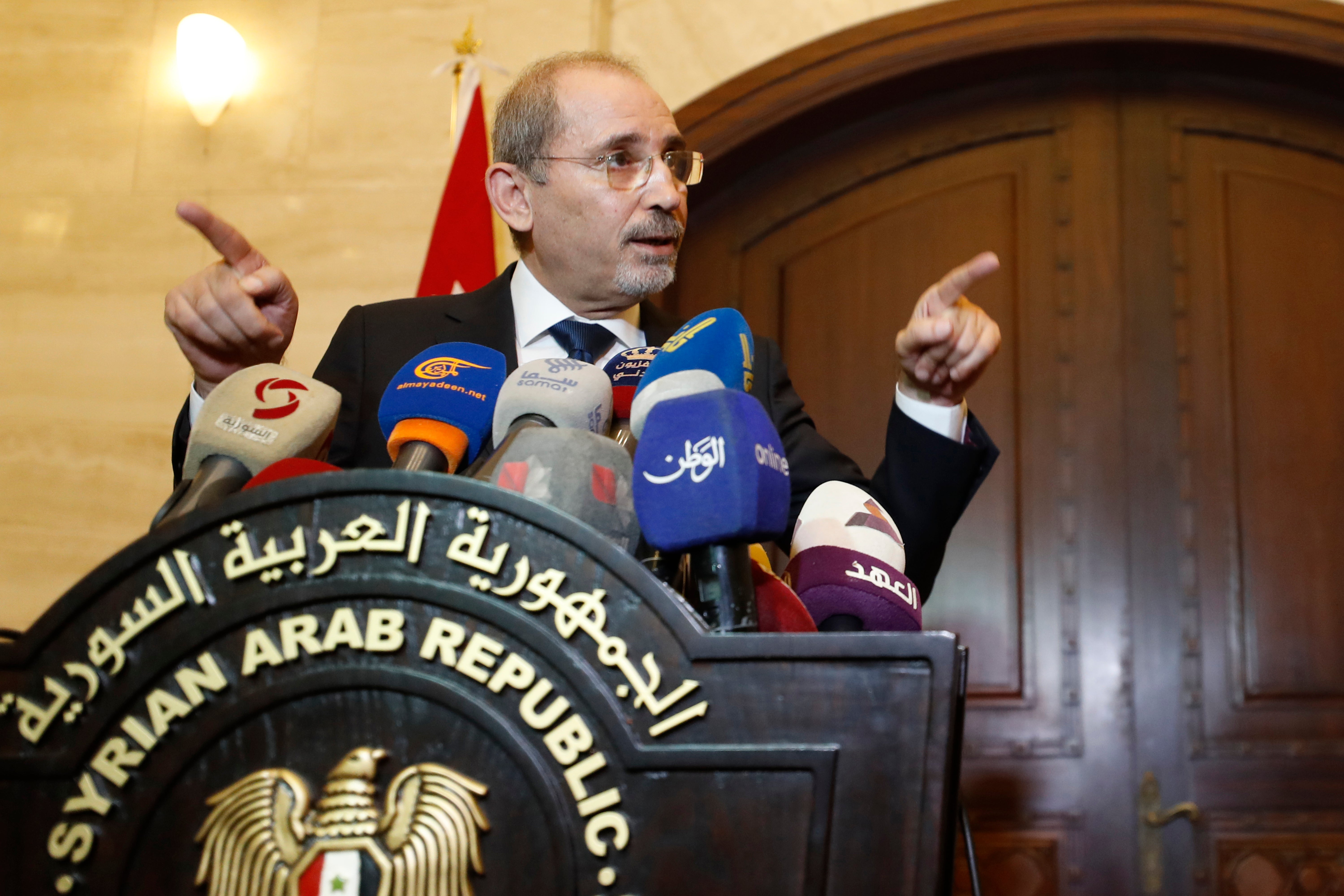Jordan's top diplomat wants to align Europeans behind a call for a permanent cease-fire in Gaza
Jordan’s Foreign Minister Ayman Safadi says his country wants a meeting of Mediterranean officials this week to help bridge a gap between Arab and European countries in calling for a humanitarian pause in Gaza to become a permanent cease-fire

Your support helps us to tell the story
From reproductive rights to climate change to Big Tech, The Independent is on the ground when the story is developing. Whether it's investigating the financials of Elon Musk's pro-Trump PAC or producing our latest documentary, 'The A Word', which shines a light on the American women fighting for reproductive rights, we know how important it is to parse out the facts from the messaging.
At such a critical moment in US history, we need reporters on the ground. Your donation allows us to keep sending journalists to speak to both sides of the story.
The Independent is trusted by Americans across the entire political spectrum. And unlike many other quality news outlets, we choose not to lock Americans out of our reporting and analysis with paywalls. We believe quality journalism should be available to everyone, paid for by those who can afford it.
Your support makes all the difference.Jordan’s Foreign Minister Ayman Safadi said Sunday he hopes a meeting of Mediterranean officials will help bridge a gap between Arab and European countries in calling for a humanitarian pause in Gaza to become a permanent cease-fire.
The fragile pause in hostilities between Israel and the Hamas militant group continued Sunday with a third straight day of hostages and Palestinian prisoners released. It was originally scheduled for four days and neither side has made fully clear what comes after Monday.
Safadi said the truce was holding up but that more effort was needed to reach at least 200 daily trucks bringing aid into the Gaza Strip, and for the pause in the fighting “to immediately develop into a permanent cease-fire.”
The minister spoke to The Associated Press on the eve of Monday’s Union for the Mediterranean gathering that will bring to Barcelona in northern Spain 42 delegations from Europe, the Middle East and northern Africa, many of them represented by their foreign ministers.
Israel is not attending the meeting, which in past years has largely become a forum for cooperation between the European Union and the Arab world. But the meeting has taken on new significance since the Oct. 7 militant attack on Israel and Israel’s ensuing war with Hamas.
Jordan, a key Western ally, signed a peace agreement with Israel in 1994. The countries maintain covert security relations and some business ties, but relations have cooled over Israel’s treatment of the Palestinians.
Safadi noted that while Arab nations have demanded the end of what he called Israel’s “aggression” in Gaza, most European nations have not gone that far, instead calling for a “humanitarian pause.”
“We need to bridge the gap,” Safadi said, adding that the war “is producing nothing.”
“What is this war achieving other than killing people, destroying their livelihoods, and again, creating an environment of hate and dehumanization that will define generations and will take us a very, very long time to navigate through toward the future that we want,” he said.
Asked about the future of Gaza, the Jordanian minister said Gaza “must be part of a comprehensive plan to settle this conflict once and for all,” although he refused to outline what that future will look like or which party should be in charge of the territory.
Instead, he said that “all manifestations of the reoccupation of Gaza should end, accusing Israel of “acting on the fallacy that it can parachute over the Palestinian issue and have peace, the regional peace, without solving the Palestinian problem.”
“The root cause of the conflict is the Palestinian-Israeli conflict," he said. "We have a conflict because we have an occupation that Israel has been consolidating. Israel has killed hope for peace, has killed prospects for peace.”
Jordan, which borders the West Bank and is home to a large Palestinian population, has rejected suggestions that it take in Palestinian refugees from Gaza.
Although some foreign passport holders and some of their relatives have been allowed to leave the territory, most of the more than 2.3 million Gaza residents have remained trapped amid the constant shelling and facing a shortage of food, water and basic needs.
Safadi said Jordan would not accept the possibility of Palestinians leaving Gaza, even if it was for their safety, given the long history of displacement and the idea that a new exodus would play into to Israel’s interest.
“We believe that displacement is something that will further empty Palestine from its people,” the minister said. “We in Jordan said that’s a red line because we see it as a threat to our national security and will do whatever it takes to prevent this from happening.”